
views
Terrorist violence has compelled numbed governments to curb civil liberties to ostensibly hunt down the terror traders. We know that the terrorists want to spread terror. Yet, governments across the world have contributed in good measure to create a fear psychosis. No wonder 21st Century terror's defining motif is its ability to infiltrate our consciousness, to provoke the fear of the 'other'. So two passengers are off-loaded from an international flight because they look 'suspicious' and more than a dozen raucous Indian Muslims are handcuffed, dragged out and detained in Netherlands because they apparently constitute a terror threat.
Our world has changed. We are now a "look behind your shoulders" society. Add to that our prejudices, fears, communal stereotyping that accompany the distress of living in a world of unknown dangers. This is where the terrorists seem to be gaining an edge because this is what they want to achieve - terror and panic. And this is where the fight must begin. Governments and communities will have to resist the terrorist violence by unfailingly protecting democracy and freedom. We must fiercely defend our ways of life because that is what the terrorists wish to change. To change the way we live, to change the way we govern ourselves, to deny us our freedom, to deny us pluralism and our natural right to celebrate our differences and diversities. Global terror is challenging human progress by pitting nations against each other, by bloodying the dialogues between civilizations, by invoking the language of the crusades of the dark ages in a digital age.
Today, its convenient to link Muslim terrorists to the religion they follow to justify connotations such as 'Islamic Terrorism' and 'Islamic Fascism'. And, we, Indians, proud inheritors of a rich multi-cultural, multi-religious heritage follow the lead forgetting that the 'Bengali Terrorists' of the eighteenth century adapted Hinduism to support their revolutionary armed movement against the British Colonial rule. The rise of revolutionary terrorism in India between 1900 and 1910 added muscle to the growing national movement against British rule. This 'terrorist tradition' had an extended afterlife till the 1930s targeting British officials. So does our understanding of 21st Century Terrorism make us uncomfortable about our past? Are we ready to write off and blacken the names of 'the revolutionary terrorist' in Bengal, Maharashtra, Orissa, Bihar, Uttar Pradesh and Punjab who fought for India's freedom. The Indian revolutionary terrorist tradition against the British rule cemented a Pan-Indian patriotism that finally culminated in the Civil Disobedience movement of Mahatma Gandhi.
Indian history textbooks eulogize (rightly so) the sacrifices of Aurobindo Ghosh, his brother Barin Ghosh, Bhupendranath Datta and Raja Subodh Mallik, all members of the Jugantar Party, which in 1900s launched a series of 'terrorist' attacks against the British Colonial rule. Many streets and roads in Kolkata are named after the Bengal Revolutionaries. But British and European history books label them as terrorists. In fact, one of the so-called terrorists, Hemchandra Qanungo, was trained in guerilla tactics in Paris. He returned to Kolkata to set up a Hindu religious school that also housed a bomb factory at a garden house in Maniktala suburb of Calcutta. So were the Indian Revolutionaries 'Hindu Terrorists' or were they merely radical, rebellious Indian freedom fighters?
Join the debate. Have your say.
Is the LTTE a bunch of murderous terrorists or are they fighting for the rights of Tamils in Sri Lanka? The LTTE assassinated an Indian Prime Minister, it has assassinated many leading political and military figures in Sri Lanka, it continues to wage war against the Sri Lankan army, yet it has a huge following in Tamil Nadu? Ever wondered why? Why is the DMK (a constituent of the ruling NDA) and other Tamil political parties supportive of the LTTE?
Join the debate. Have your say.
In India's North-East, the Nagas have been in conflict with the Indian State for more than half a century. Myriad insurgent groups in the North-East challenge India's sovereignty every single day. A huge swathe of Southern and South-Eastern Manipur, Nagaland and other small pockets in the region are outside the Indian government's control. In certain areas within the so-called Red Corridor the government has been a mute spectator as an extremist Left outfit, CPI (Maoists), have unfurled their red revolutionary hammer and sickle flag. So are Nagas 'terrorists'? What about the Maoists (Naxals)? Are the armed militia of Kukis who are not secessionist, but want their own statehood 'terrorists'? They armed themselves to protect their tribal community from murderous attacks by Nagas. After all ethnic wars are not merely wars of assertive identity politics, but also for territorial control of imagined homelands. Are members of Bodo army wanting a Bodo homeland to be created by splicing territory out of Assam 'terrorists'?
That brings me to a larger question. Who is a terrorist? And what is terrorism? Yasser Arafat walked into the United Nations carrying a gun on November 13, 1974. In his speech to the UN General Assembly he said: "Today I have come bearing an olive branch and a freedom fighter's gun." For a long time the Western world called him a 'terrorist' and India called him a 'friend'. Even after signing of the peace accord that eventually led to the creation of the Palestinian National Authority, Israel continued to call Arafat a 'terrorist'. Such reversals of perspective are evident in Pakistan's support of terrorist activity in India. For General Musharraf Lashkar-e-Toiba's (LET) chief, Hafeez Mohammad Saeed, is not a terrorist. So also Maulana Masood Azhar, founder of Jaish-e-Mohammad (JEM). LET and JEM are responsible for the deaths of hundreds of innocent Indian citizens.
Join the debate. Have your say.
Such are the complexities of defining terrorism that internationally there is no accepted meaning of what constitutes terrorism. Except for few UN Conventions and resolutions passed by the UN General Assembly there is as yet no one single definition of terrorism that the world community believes in. So what is the global war against terror all about? On September 11, National Geographic Channel will telecast a brilliant two-hour documentary on 'Bin Laden's Spy in America'. Apart from revealing Bin Laden's spy the documentary will showcase how the US involvement in Afghanistan and the Middle East actually provided the fodder for the growth of 21st Century Terror.
By invading Iraq the US and the Western Alliance have pushed hundreds of youths across the Muslim world into the terrorism vortex. By leaving the festering sore of Israeli-Palestinian conflict unattended and by egging Israel to bomb Lebanon, hundreds more restive and alienated Muslim youths have been primed for recruitment by Al Qaeda. When you watch the terrorism series on CNN-IBN culled out of National Geographic Channel's investigative series on terrorism you will come across stunning revelations of how 21st Century Terrorism uses modern information and communication technology to recruit, brainwash, train and commit young people to terrorism.
In all the prevailing confusions there are some realities that we can't ignore. We cannot allow people with blood on their mind to plant bombs in public places - markets, cinema halls and trains - to kill and maim innocent lives. No injustice, no political slight, no alienation from the mainstream, nothing in our animate living world justifies violence against unarmed civilians or against a country's life-force - its economy, its way of life and its infrastructure. Long time ago cynics did get it right when violence was seen through perspective of one state's 'terrorist' is another state's 'freedom fighter'. No longer. Today terrorism threatens democracy and development. It threatens internal security of countries across the world. It communalizes perfectly harmonious societies. It damages our trust in technology and our ability to use it for the progress of humankind. At the most basic level it has brought us to war with each other. For all these reasons 21st century terrorism is different from revolutionary movements. The root of 21st Century terrorism was planted in the 1990s and its time now to understand it because it is our common enemy. India must fight back. So must the world.
Join the debate. Have your say.first published:September 07, 2006, 18:42 ISTlast updated:September 07, 2006, 18:42 IST
window._taboola = window._taboola || [];_taboola.push({mode: 'thumbnails-mid-article',container: 'taboola-mid-article-thumbnails',placement: 'Mid Article Thumbnails',target_type: 'mix'});
let eventFire = false;
window.addEventListener('scroll', () => {
if (window.taboolaInt && !eventFire) {
setTimeout(() => {
ga('send', 'event', 'Mid Article Thumbnails', 'PV');
ga('set', 'dimension22', "Taboola Yes");
}, 4000);
eventFire = true;
}
});
window._taboola = window._taboola || [];_taboola.push({mode: 'thumbnails-a', container: 'taboola-below-article-thumbnails', placement: 'Below Article Thumbnails', target_type: 'mix' });Latest News
21st century terror is about sudden, unexpected, terrible violence unleashed on hapless people. They might be shopping in a marketplace (Sarojini Nagar, Delhi) or traveling in a train (Mumbai, Madrid or London), unmindful of deathly bombs ticking nearby. 9/11 opened a terror tap drawing off unimaginable slaughter of innocent lives from Madrid to Mumbai, from Beslan to Bali, strewing the global news-space with images of torn, bloodied bodies, grieving families and stunned communities.
Terrorist violence has compelled numbed governments to curb civil liberties to ostensibly hunt down the terror traders. We know that the terrorists want to spread terror. Yet, governments across the world have contributed in good measure to create a fear psychosis. No wonder 21st Century terror's defining motif is its ability to infiltrate our consciousness, to provoke the fear of the 'other'. So two passengers are off-loaded from an international flight because they look 'suspicious' and more than a dozen raucous Indian Muslims are handcuffed, dragged out and detained in Netherlands because they apparently constitute a terror threat.
Our world has changed. We are now a "look behind your shoulders" society. Add to that our prejudices, fears, communal stereotyping that accompany the distress of living in a world of unknown dangers. This is where the terrorists seem to be gaining an edge because this is what they want to achieve - terror and panic. And this is where the fight must begin. Governments and communities will have to resist the terrorist violence by unfailingly protecting democracy and freedom. We must fiercely defend our ways of life because that is what the terrorists wish to change. To change the way we live, to change the way we govern ourselves, to deny us our freedom, to deny us pluralism and our natural right to celebrate our differences and diversities. Global terror is challenging human progress by pitting nations against each other, by bloodying the dialogues between civilizations, by invoking the language of the crusades of the dark ages in a digital age.
Today, its convenient to link Muslim terrorists to the religion they follow to justify connotations such as 'Islamic Terrorism' and 'Islamic Fascism'. And, we, Indians, proud inheritors of a rich multi-cultural, multi-religious heritage follow the lead forgetting that the 'Bengali Terrorists' of the eighteenth century adapted Hinduism to support their revolutionary armed movement against the British Colonial rule. The rise of revolutionary terrorism in India between 1900 and 1910 added muscle to the growing national movement against British rule. This 'terrorist tradition' had an extended afterlife till the 1930s targeting British officials. So does our understanding of 21st Century Terrorism make us uncomfortable about our past? Are we ready to write off and blacken the names of 'the revolutionary terrorist' in Bengal, Maharashtra, Orissa, Bihar, Uttar Pradesh and Punjab who fought for India's freedom. The Indian revolutionary terrorist tradition against the British rule cemented a Pan-Indian patriotism that finally culminated in the Civil Disobedience movement of Mahatma Gandhi.
Indian history textbooks eulogize (rightly so) the sacrifices of Aurobindo Ghosh, his brother Barin Ghosh, Bhupendranath Datta and Raja Subodh Mallik, all members of the Jugantar Party, which in 1900s launched a series of 'terrorist' attacks against the British Colonial rule. Many streets and roads in Kolkata are named after the Bengal Revolutionaries. But British and European history books label them as terrorists. In fact, one of the so-called terrorists, Hemchandra Qanungo, was trained in guerilla tactics in Paris. He returned to Kolkata to set up a Hindu religious school that also housed a bomb factory at a garden house in Maniktala suburb of Calcutta. So were the Indian Revolutionaries 'Hindu Terrorists' or were they merely radical, rebellious Indian freedom fighters?
Join the debate. Have your say.
Is the LTTE a bunch of murderous terrorists or are they fighting for the rights of Tamils in Sri Lanka? The LTTE assassinated an Indian Prime Minister, it has assassinated many leading political and military figures in Sri Lanka, it continues to wage war against the Sri Lankan army, yet it has a huge following in Tamil Nadu? Ever wondered why? Why is the DMK (a constituent of the ruling NDA) and other Tamil political parties supportive of the LTTE?
Join the debate. Have your say.
In India's North-East, the Nagas have been in conflict with the Indian State for more than half a century. Myriad insurgent groups in the North-East challenge India's sovereignty every single day. A huge swathe of Southern and South-Eastern Manipur, Nagaland and other small pockets in the region are outside the Indian government's control. In certain areas within the so-called Red Corridor the government has been a mute spectator as an extremist Left outfit, CPI (Maoists), have unfurled their red revolutionary hammer and sickle flag. So are Nagas 'terrorists'? What about the Maoists (Naxals)? Are the armed militia of Kukis who are not secessionist, but want their own statehood 'terrorists'? They armed themselves to protect their tribal community from murderous attacks by Nagas. After all ethnic wars are not merely wars of assertive identity politics, but also for territorial control of imagined homelands. Are members of Bodo army wanting a Bodo homeland to be created by splicing territory out of Assam 'terrorists'?
That brings me to a larger question. Who is a terrorist? And what is terrorism? Yasser Arafat walked into the United Nations carrying a gun on November 13, 1974. In his speech to the UN General Assembly he said: "Today I have come bearing an olive branch and a freedom fighter's gun." For a long time the Western world called him a 'terrorist' and India called him a 'friend'. Even after signing of the peace accord that eventually led to the creation of the Palestinian National Authority, Israel continued to call Arafat a 'terrorist'. Such reversals of perspective are evident in Pakistan's support of terrorist activity in India. For General Musharraf Lashkar-e-Toiba's (LET) chief, Hafeez Mohammad Saeed, is not a terrorist. So also Maulana Masood Azhar, founder of Jaish-e-Mohammad (JEM). LET and JEM are responsible for the deaths of hundreds of innocent Indian citizens.
Join the debate. Have your say.
Such are the complexities of defining terrorism that internationally there is no accepted meaning of what constitutes terrorism. Except for few UN Conventions and resolutions passed by the UN General Assembly there is as yet no one single definition of terrorism that the world community believes in. So what is the global war against terror all about? On September 11, National Geographic Channel will telecast a brilliant two-hour documentary on 'Bin Laden's Spy in America'. Apart from revealing Bin Laden's spy the documentary will showcase how the US involvement in Afghanistan and the Middle East actually provided the fodder for the growth of 21st Century Terror.
By invading Iraq the US and the Western Alliance have pushed hundreds of youths across the Muslim world into the terrorism vortex. By leaving the festering sore of Israeli-Palestinian conflict unattended and by egging Israel to bomb Lebanon, hundreds more restive and alienated Muslim youths have been primed for recruitment by Al Qaeda. When you watch the terrorism series on CNN-IBN culled out of National Geographic Channel's investigative series on terrorism you will come across stunning revelations of how 21st Century Terrorism uses modern information and communication technology to recruit, brainwash, train and commit young people to terrorism.
In all the prevailing confusions there are some realities that we can't ignore. We cannot allow people with blood on their mind to plant bombs in public places - markets, cinema halls and trains - to kill and maim innocent lives. No injustice, no political slight, no alienation from the mainstream, nothing in our animate living world justifies violence against unarmed civilians or against a country's life-force - its economy, its way of life and its infrastructure. Long time ago cynics did get it right when violence was seen through perspective of one state's 'terrorist' is another state's 'freedom fighter'. No longer. Today terrorism threatens democracy and development. It threatens internal security of countries across the world. It communalizes perfectly harmonious societies. It damages our trust in technology and our ability to use it for the progress of humankind. At the most basic level it has brought us to war with each other. For all these reasons 21st century terrorism is different from revolutionary movements. The root of 21st Century terrorism was planted in the 1990s and its time now to understand it because it is our common enemy. India must fight back. So must the world.
Join the debate. Have your say.











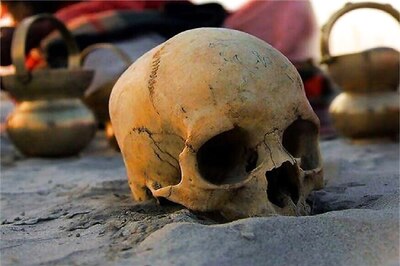
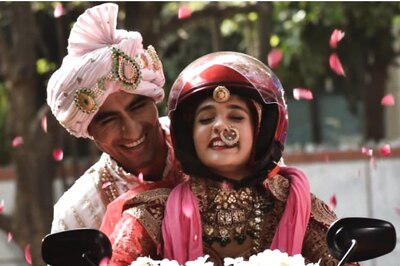


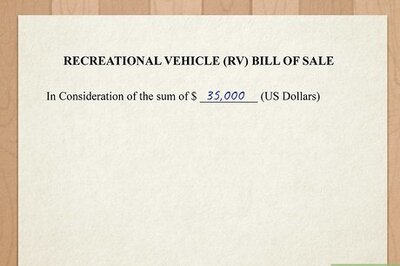
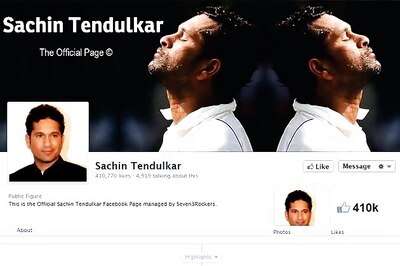
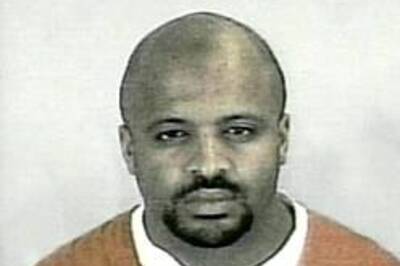


Comments
0 comment